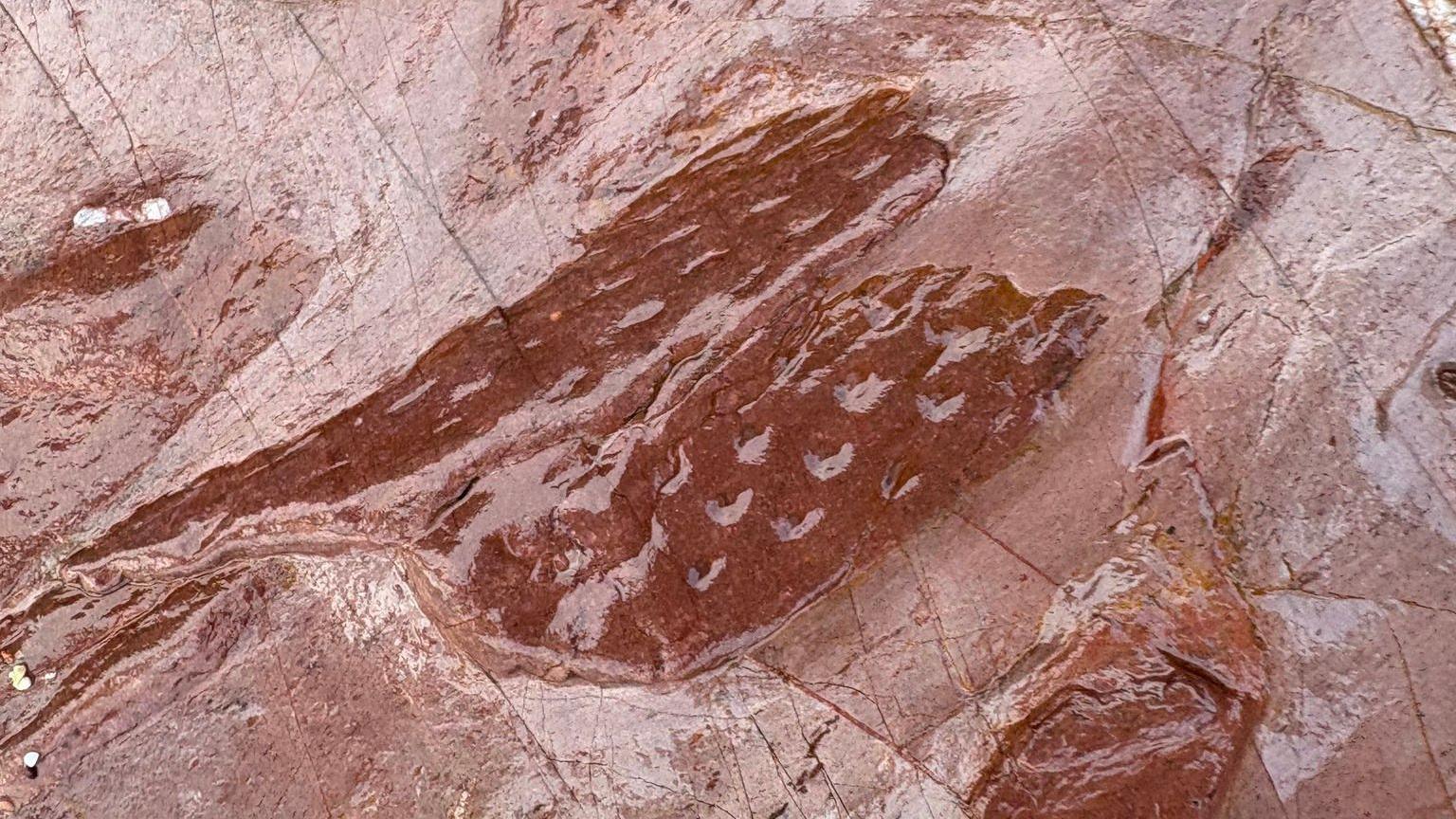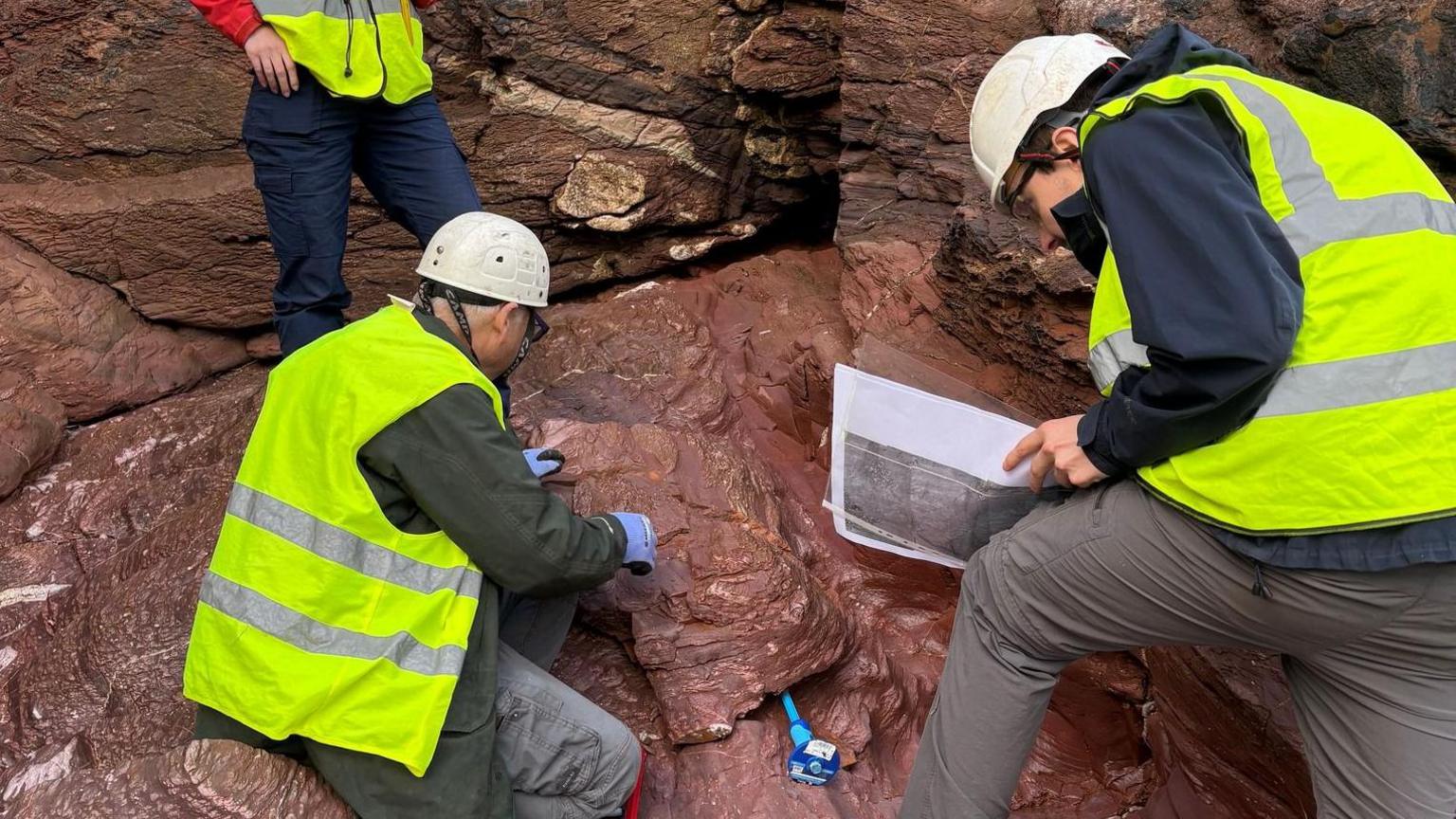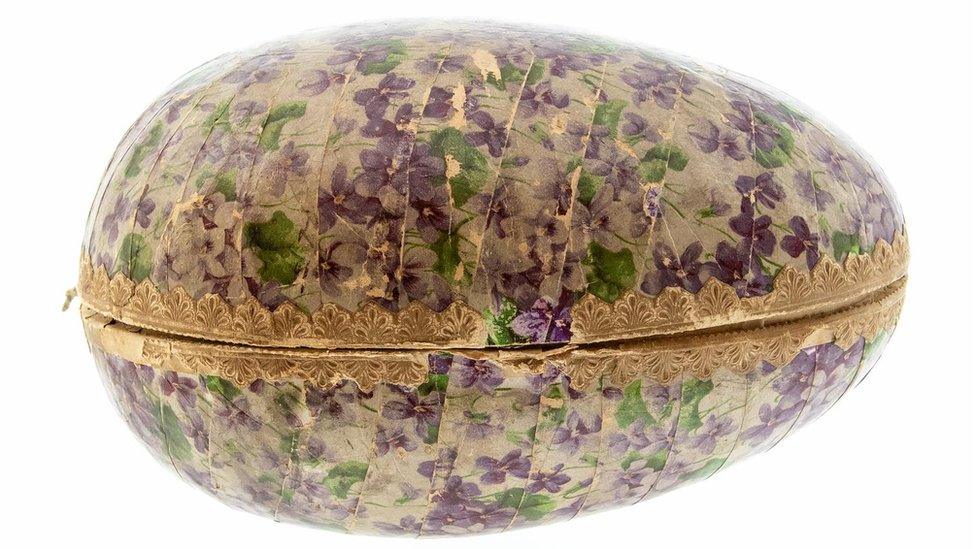Tree fossil evidence of Torbay's volcanic islands

It was discovered by Dr Kevin Page during a condition survey at Saltern Cove
- Published
An ancient tree fossil which showcases "the presence of volcanic islands" has gone on display at Torquay Museum.
The fossil, discovered in the English Riviera UNESCO Global Geopark at Saltern Cove, is believed to be 377 million years old.
It was discovered by Dr Kevin Page, who said the find would provide insights into the prehistoric environment of the area.
It belongs to a primitive tree known as lycopsids and it is hoped that it will give scientists an understanding of the ancient landscape of Torbay.
The museum said due to the rarity of the discovery it was kept under wraps for some time while the Geopark co-ordinated a group including people from universities in Exeter, Plymouth, Cardiff and Lille in France.

It belongs to a primitive tree known as 'lycopsids'
Dr Kevin Page, Honorary Senior Research Fellow at Camborne School of Mines, University of Exeter, said: "These fossils are incredibly significant as they provide valuable insights into the prehistoric environment of Torbay, including the presence of volcanic islands with trees growing on them.
"This could potentially be the first record of a Devonian desert island with trees, a truly remarkable find."
The fossil display is part of a collection of fossils recovered and is now in the care of Torquay Museum's curatorial team, before it undergoes academic study over the coming months.
Follow BBC Devon on X, external, Facebook, external and Instagram, external. Send your story ideas to spotlight@bbc.co.uk, external.
- Published16 March 2021

- Published20 March
